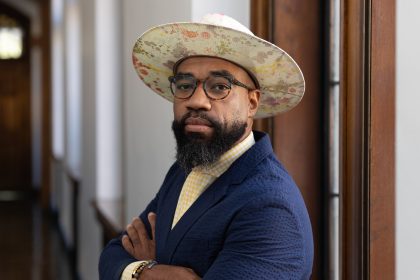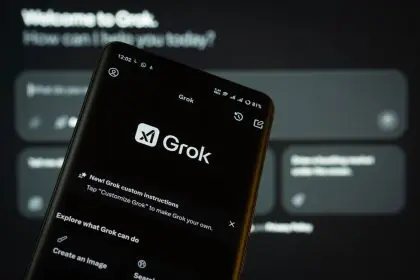Marlon Avery is the driving force behind AImpact and is passionate about bridging the gap between AI and people. AImpact, under Avery’s direction, offers practical training, innovative tools and trusted advisory services. Before AImpact, Avery led the way as the Engineering Director at Lightship Capital, where he evaluated and guided emerging startups. His influence extends to collaborations with industry giants like Uber, Udacity and Treehouse.
Ever the entrepreneur, Avery has been instrumental in bringing to life platforms such as Rekure, the HaHa Davis app, and more recently, Wallet Clicks. With roots in dynamic locales like Atlanta, Texas and Silicon Valley, Avery now calls Miramar, Florida, home. Beyond his professional milestones, Avery’s commitment to empowering the next generation of developers is evident. He launched the NextSteps DevCon engineering conference in 2020, a testament to this dedication. Moreover, Avery initiated the Pledge to Equality Scholarship program for Udacity courses, a significant step towards enhancing education for underserved communities. Remarkably, this initiative has granted over 10,000 scholarships in just five years, with a pronounced emphasis on supporting the Black community. Throughout his career, Avery’s unwavering commitment to excellence and innovation shines brightly. He consistently demonstrates how technology — when married with purpose —ncan elevate human potential.
He shared a few moments with rolling out publisher Munson Steed. Here is their conversation.
Munson Steed: Hey, everybody! This is Munson Steed and we are on CEO to CEO [discussing] the power of AI and those who are there to mitigate any confusion about how important it is to you. There’s a brother who has AImpact. AI … say it again, Marlon.
Marlon Avery: AImpact.
Steed: AImpact. See, he named his company AI, so not a coincidence.
He’s a brilliant brother. He really wants us to have access. This is a powerful message; it’s one to be shared. Why AI? What should we know? Just the top tentpole, if you’re going to tell a person, why lean in right now? Why lean into AI at this very second? Why should they be leaning into AI? And how?
Avery: Yeah, for sure, I mean, based on who’s listening to this call. You’ve either been through a transitional period, or your parents have, or your grandparents have. Meaning that you’ve either lived through the industrial revolution change, the farming industry change, or the Internet revolution. And this one right now is the AI revolution. And so, for just kind of quick, quick knowledge and stuff there. McKenzie and Company did an article a couple of months ago, and they said generative AI is going to add anywhere from $2.6 – $4.4 trillion dollars to the economy. They say that for businesses [it’s] going to follow in four categories: consumer support, things thinking about your chatbots, software engineering [and] research and development. And so, these things already happening. It’s being impactful.
Harvard did research and said that they’ve found that individuals who are using ChatGPT have already seen up to a 40% increase in productivity. And so, even with that tool as well of that demographic, only 35 percent of Americans right now are using it. [Of that] 35 percent we’re seeing 44 percent Indian Asian community, 20 percent Hispanic, 17 percent White and 14 percent African Americans. So, we’re there in some [form] and everything, but we’re not there as much as we need to be. And so you get individuals like me that’s going to tap into the education piece but also to the enlightening and understanding how to use it and integrate it.
Steed: Let’s back up a little bit because … most people may not understand generative AI. When you use the word generative, what should we think? And how can we apply that to our businesses today?
Avery: Yeah, I think of generative AI. It can be in a couple of different buckets and everything. So, right now we got it, it started off with text, meaning, the ability to compile different formats of text. So, we’re now we’re talking about poems; we’re talking about lyrics; we’re talking about emails; we’re talking about presentation material. That has quickly informed … that formed into now would be … adding pictures, images and stuff to that. Now we’re starting to add audio and everything. Now we’re starting to add video and everything, and even games and everything. So this is kind of what is called multi-model as well. And so basically, it gives the human being the ability to use AI for creation through text, audio, images or video.
Steed: I love it… it also allows me to be anything that I want to be. If you know, when you think about, we say, oh, it’s just predicting. Oh, it’s just predicting what’s going to happen. It will predict a building layout for you, since there is another main building layout, said it already has in its database [and] it will predict for you. What do we know about that type of power and control when we think of our imaginations? What should we be thinking about, as it relates to allowing the Black family and Black businesses to really think about the capacity that AI has to assist us to level the playing field and kind of get ahead in capacity? You know, tools that you’re using, Marlon, that we may not be thinking about leaning into.
Avery: Yeah, I’m going to ask them in two ways. The first way is I’ve seen a lot of individuals complain, typically who live, like, in the San Francisco Bay Area that they’re not … they’re not getting the impact that they thought there was going to get from it and everything, meaning that it already kind of thinks like them. It’s not typically advancing their thought process or thing, which is fine. But what did it do for the rest of the world? Because the rest of the world doesn’t have that access, net knowledge and stuff to what we think of. So, the first one is using this to advance your different learnings, your education, everything. So we said, what about the business thing? What about new marketing strategies that you might have thought about? New ads and stuff that you might think about, [such as] texting stuff for ads and … new thought process around customer acquisition. Everything. So, these are some things. Now, we have access to a tool beyond Google and everything that can communicate to us like the way we need to and everything.
Second, the second answer is — there are individuals like yourself and other people who may be watching this — that we know where our superpower is. We know kind of like what makes us us. And how we can advance society in ways and stuff that we like to see fit. We also can use this tool to become an extension of us. And so, the extension process and everything. I’ll say this, today everybody should start thinking about how to [use the] thought process of how to develop an AI version of themselves. Why? Really, because we’re going to get to a place where the knowledge and the output strategies that we have as an individual will become valuable not only to somebody, but to a company — and not to a company, but institutions. Everything. So what happens? When Frederick Douglass now can have an AI assistant that can be a tutor to me to some capacity and whatever subject, and everything. Or the way, the individual thought process, information and everything. How to kind of get from point A to point B, and so in that we can use and stuff, multiple different ways. And so, for our business. I mean, I’ve built and taught individuals how to build their own AI email assistant. You’re building your AI to write grants. Tell AI [to do] a calendar integration or [create] a calendar assistant. So, it’s just now, these tools and stuff [are] available. [Now, we] just kind of focus around the education of how we input and how we integrate and how we build on top of [this AI].
Steed: When you think about that and you think about, you said, Frederick Douglass. You imagine that out of all the patents that we think of, when we think of George Washington Carver. We say, you know what, I want to be with you on that day for this particular patent and George, could you? And now I can artificially grab his voice have him teaching me and, sharing the thought process of how important it was for that one peanut to generate all those patented ideas. Are we thinking historically, how we can actually teach and give an infusion of history so that we go and then quantum mechanics moves in, [where] we now can walk where there will be somebody that will create that? [Where someone can build] a better hologram [of Carver], where he’ll be a full avatar and take the time and speak in his cadence, and in his time period, and showcase the exact model [that he used], teaching us what it was like to be and apply for that patent? Or we can see, instead of imagining that Tulsa was a concept, we can actually find as many people that were on the census and actually bring back or taken from the census data and then think about [how] it was? They omitted 100 of those people, and now [we can] kind of resurrect the 100 million Africans who were never counted when we came to this country?
Avery: Man, it’s a beautiful question. Are we thinking about this? Absolutely not. We’re not thinking about this. I believe … we’re still at a place of the building blocks where we still have time to build on top of it, integrate such things. So, what you’re alluding to … comes the ability, like we talked about earlier, for every HBCU to start to develop their own AI model. Now, that can be multiple, different things and everything. So, they would have a baseline for the AI model, with their knowledge and everything from textbooks to history to student data, — all different things like that and everything. But that AI model will also connect to and talk to the next one, and the next one and the next one.
And so essentially, what you start to build, in sort of ways, is called a knowledge graph and what you do with it. Now, you have the ability to a platform just like chatGPT to communicate to you or to us, and everything, in ways that we need to process information and everything: in the dialect tone, reasoning that we need to process information from and most importantly certify, and complete data and everything. It doesn’t need to be watered down. We can get the fulfillment and trust the data and stuff that we’re coming to, especially when we’re talking about a technology like blockchain that we’ve all kind of kind of, like, put aside. But this is a pivotal tool that we need, as we’re looking to build these types of foundations around knowledge and information as we move forward.
















